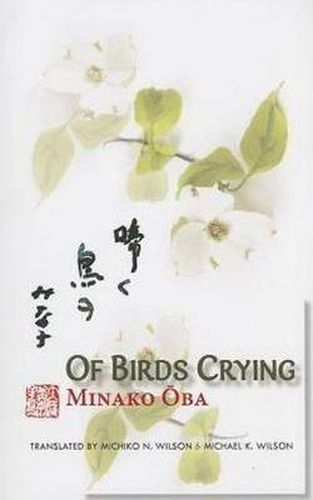Readings Newsletter
Become a Readings Member to make your shopping experience even easier.
Sign in or sign up for free!
You’re not far away from qualifying for FREE standard shipping within Australia
You’ve qualified for FREE standard shipping within Australia
The cart is loading…






Of Birds Crying (Naku tori no, 1985), the recipient of the Noma Bungei Prize, is loosely based on the author’s own life, recounting six months in the lives of Yurie Mama, a well-established middle-aged novelist married to a scientist. In this deeply psychological novel, a tapestry of extraordinary moments expands and interconnects via interior monologues and dialogues ranging from the humorous and farcical to the somber and meditative. Acutely perceptive social and cross-cultural commentaries fill the narrator’s voice and the characters’ conversations. Long-forgotten incidents come back to life, triggered by the sight of an ancient tree, the name of a flower, or the crying of a bird, and memories spawn tales within tales. Despite the fact that the characters’ motives for their actions defy prediction, these seemingly disparate elements are woven into a coherent whole, a reflection of the interdependency of humanity and nature in its wholeness that is one of the many underlying threads of the story.
$9.00 standard shipping within Australia
FREE standard shipping within Australia for orders over $100.00
Express & International shipping calculated at checkout
Stock availability can be subject to change without notice. We recommend calling the shop or contacting our online team to check availability of low stock items. Please see our Shopping Online page for more details.
Of Birds Crying (Naku tori no, 1985), the recipient of the Noma Bungei Prize, is loosely based on the author’s own life, recounting six months in the lives of Yurie Mama, a well-established middle-aged novelist married to a scientist. In this deeply psychological novel, a tapestry of extraordinary moments expands and interconnects via interior monologues and dialogues ranging from the humorous and farcical to the somber and meditative. Acutely perceptive social and cross-cultural commentaries fill the narrator’s voice and the characters’ conversations. Long-forgotten incidents come back to life, triggered by the sight of an ancient tree, the name of a flower, or the crying of a bird, and memories spawn tales within tales. Despite the fact that the characters’ motives for their actions defy prediction, these seemingly disparate elements are woven into a coherent whole, a reflection of the interdependency of humanity and nature in its wholeness that is one of the many underlying threads of the story.